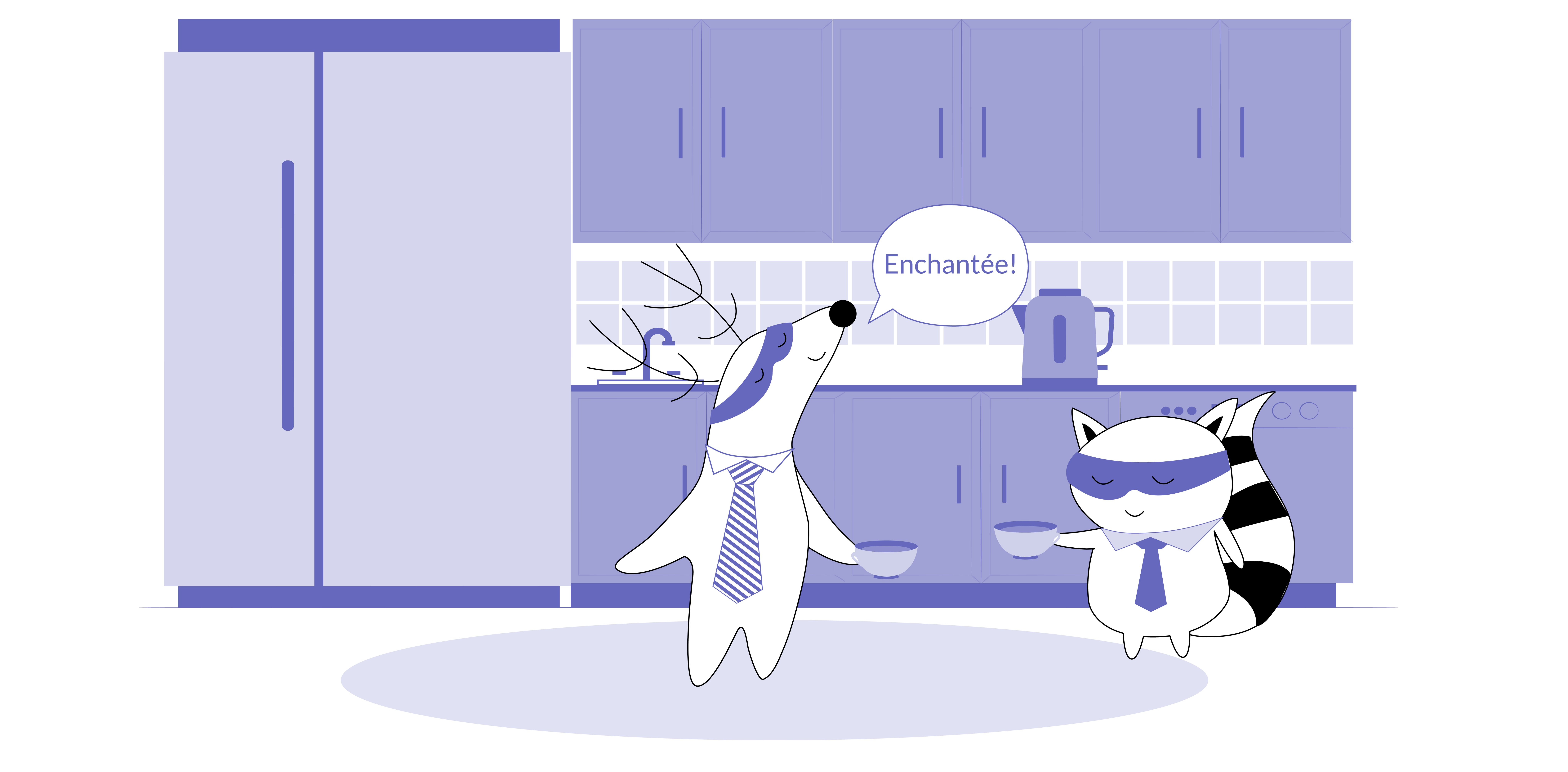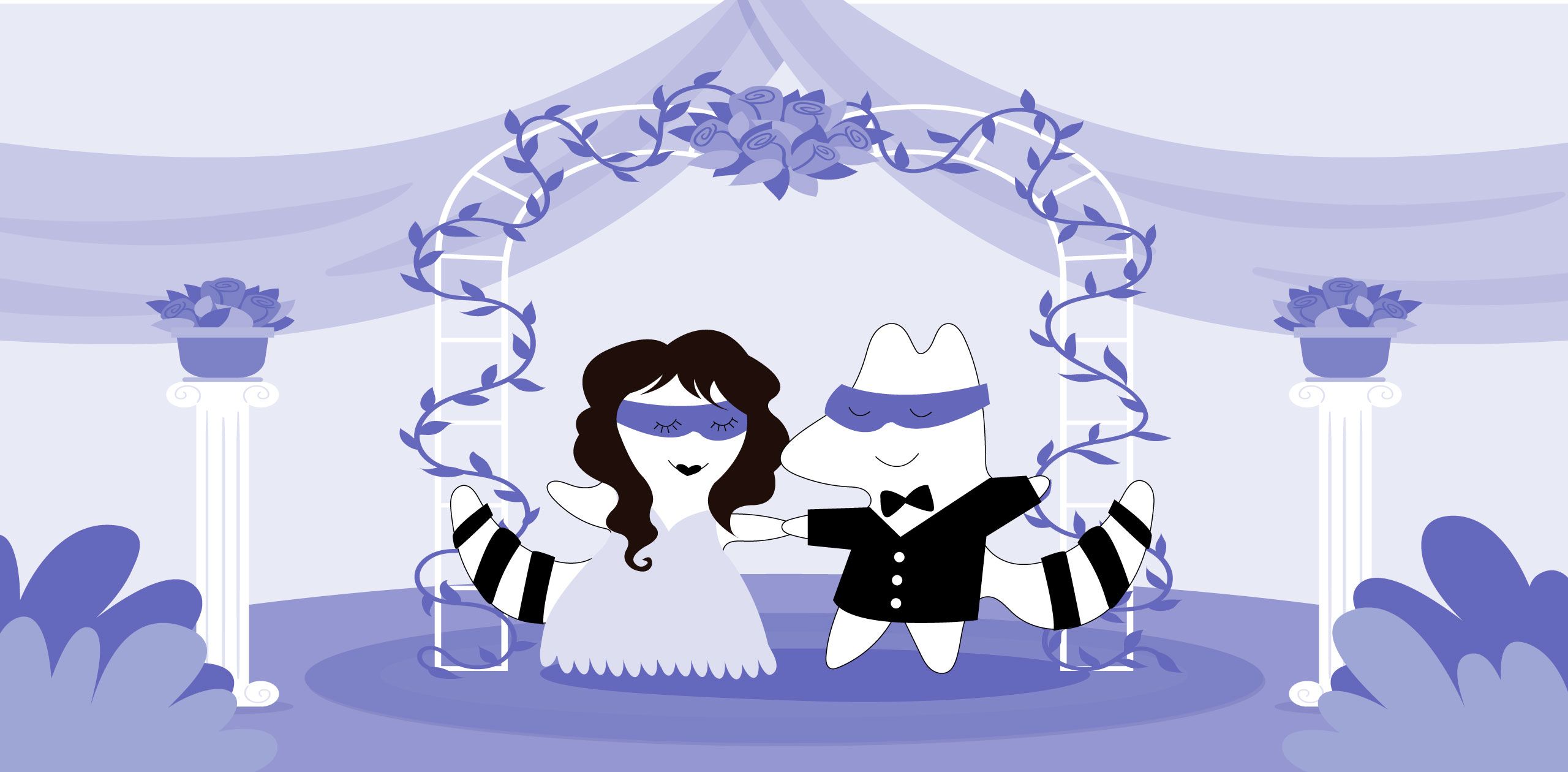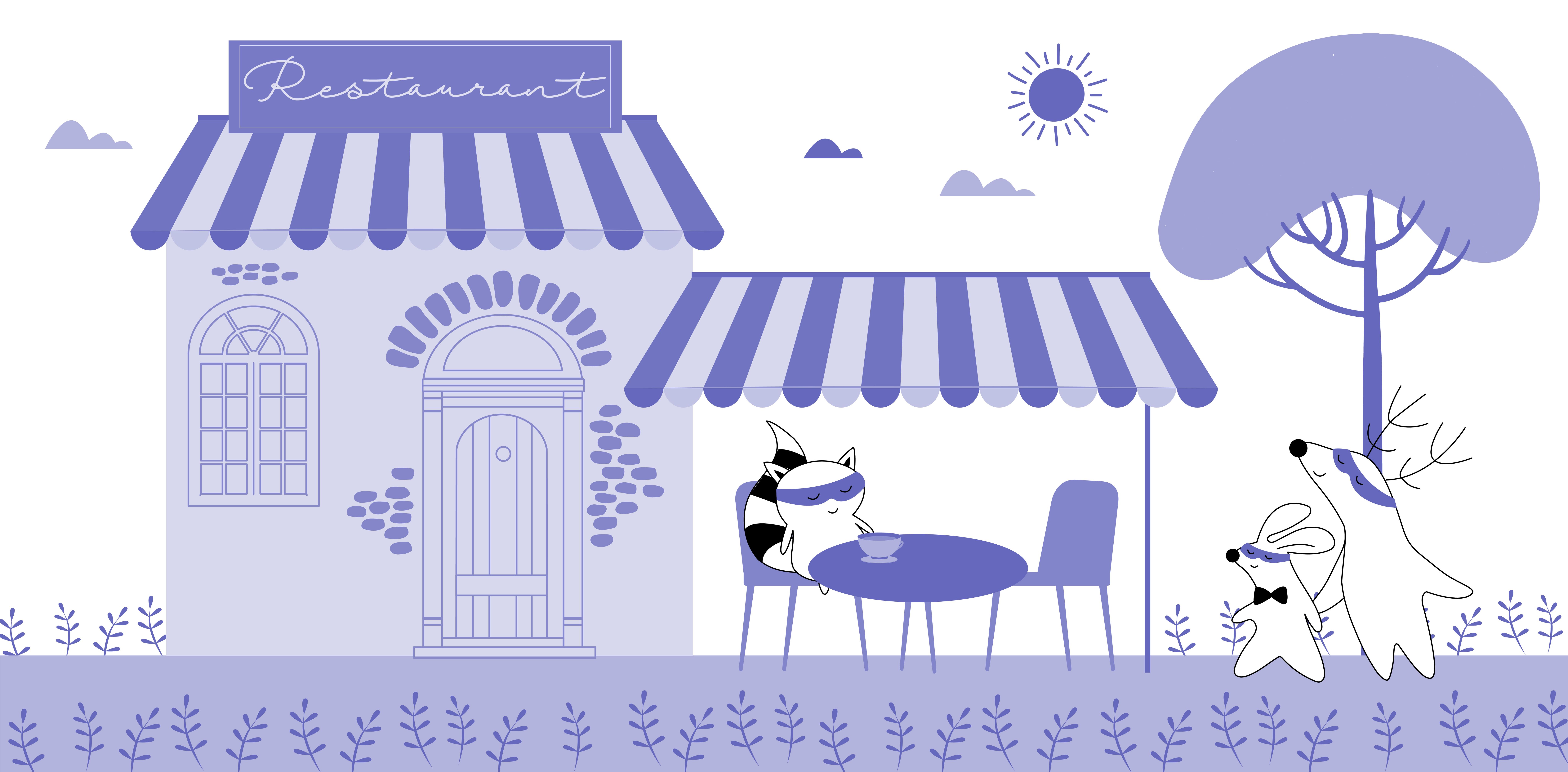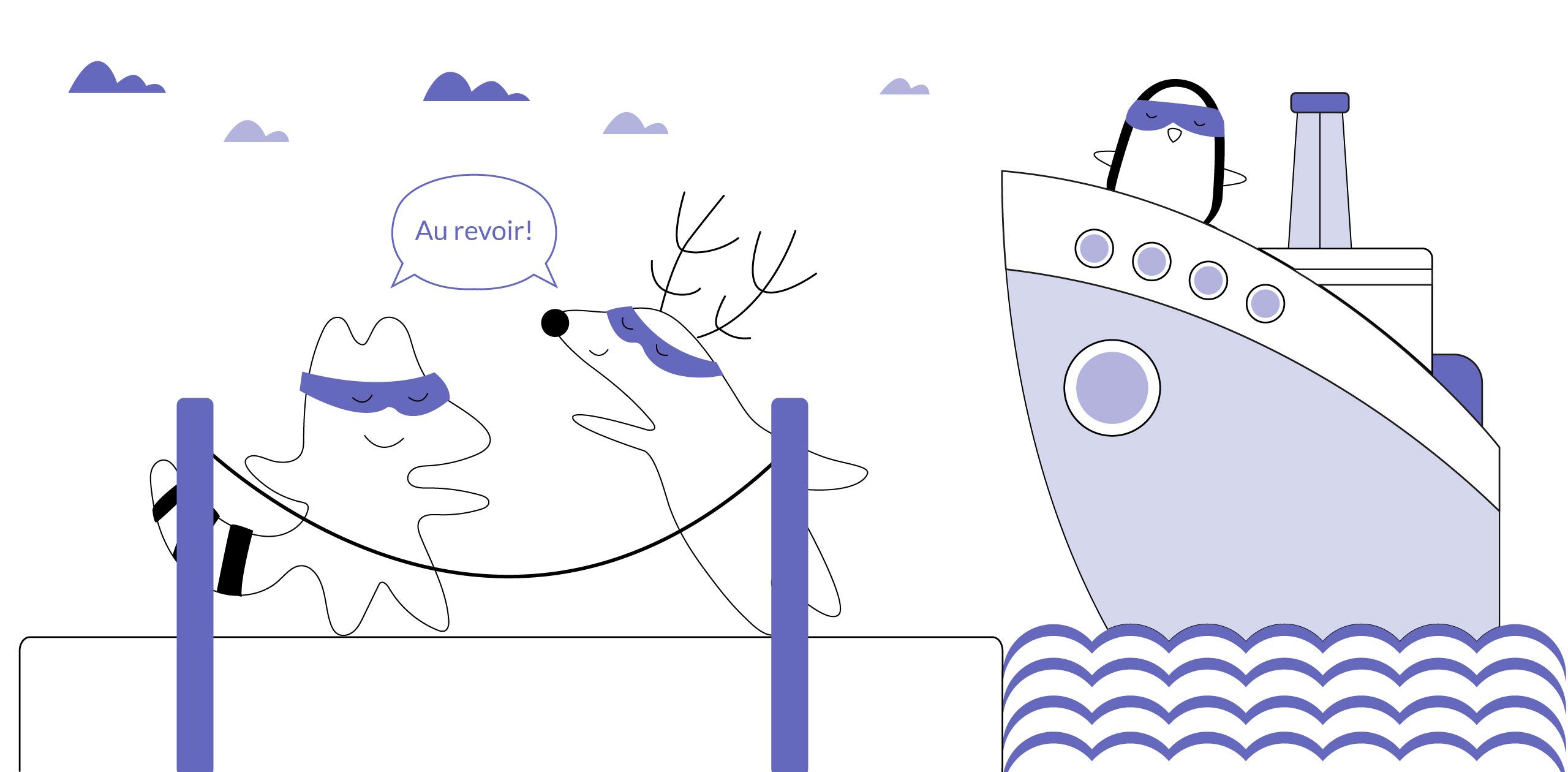
When you’re learning French, the two basic words you familiarize yourself with right from the beginning are “hello” and “goodbye” - “bonjour” and “au revoir.” However, there is far more to it when it comes to the French language.
Just like in English you can say goodbye to a person in several different ways (for example, “farewell” or “so long”), in French, you can do the same.
This means that you have a whole number of words you can choose from instead of going for a basic “au revoir.” To not confuse you, let’s start simple - with some common expressions like “salut” and “à bientôt.” Want to learn to say bye in French? Read on.
Learn French with Langster
Salut - Basic French for “Goodbye”
"Salut” is the most casual form of saying goodbye in French. You can say it to your friends, siblings, classmates, or parents - if you prefer an informal way of speaking with them.
And, to make your life simpler, it’s also used for saying “hi!” No need to learn more - now you can enter the room and exit it like a true French person.
Just Remember:
Don’t mistake “salut” with the English “hi.” You won’t say “salut” at a grocery store or to a postman - that will simply be impolite. Instead, use this word when you’re talking to your peers or people that belong to the same social class as you.
To sum it up, “salut” is used to say goodbye in French when you're talking to friends, closer peers, and family, but not strangers.
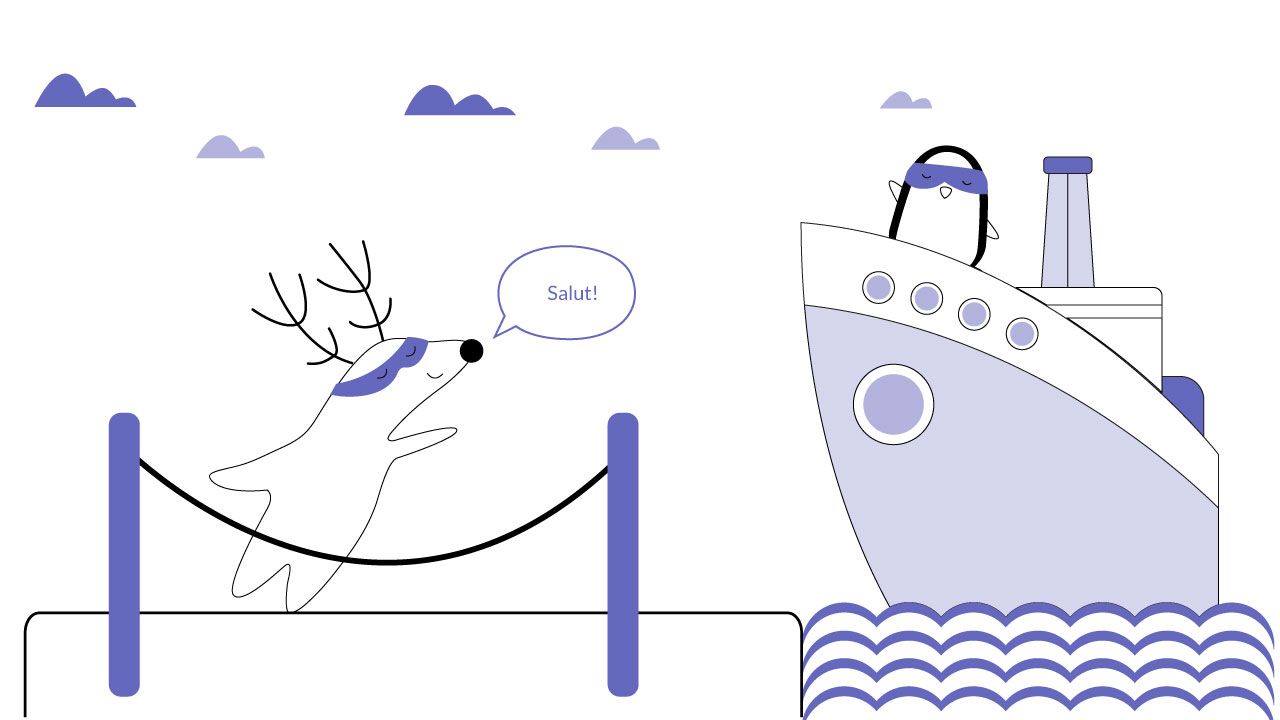
It’s Easy to Use - and Easy to Say
There’s nothing complicated in pronouncing “salut,” especially when compared to “au revoir.” Simply say sah-lou - and remember that “t” is silent at the end of most French words.
French
English
Salut
Bye/hi
À Bientôt - “See You Soon”
“À bientôt” can be used in both formal and informal situations - that’s the magic of it. Whether at school, in the office, or at a bar, say it when you are sure you’ll be seeing the person soon.
What About Grammar?
You will use the preposition “à” in French in a variety of situations. Depending on the context, it will have different meanings - for example, “to” or “at” when we’re speaking about destinations.
However, in our case, it will mean “until” or “till.” So the phrase “à bientôt’” basically means “till soon” - or “see you soon.’
You can also use the construction à + any day of the week, such as "à lundi!" (till Monday!)
How to Pronounce “À Bientôt’?
It’s not as challenging as it seems. We’d say that ah byen to can be a decent transcription, but it’s not perfect. Here's a native pronunciation:
French
English
À bientôt
See you soon
À Plus Tard - “See You Later”
When you talk to your friend on the phone and say goodbye, you can say often “à plus tard” to them. It means “see you later” or “until later” - so you use it when a close meeting is implied.
Saying “à plus tard” is a very popular way of leaving in France. Moreover, a shorter version is often used today- you can omit the last word and simply say “à plus”. Don’t worry, everyone will understand you. French “À plus” is a classic informal way of saying goodbye in the modern world.
If you are writing an informal e-mail (for example, to a colleague you’re friends with) or sending a text message to your copine, you can use an even simpler version of this phrase. Simply type “A+” at the end of the message, and that will do the trick.
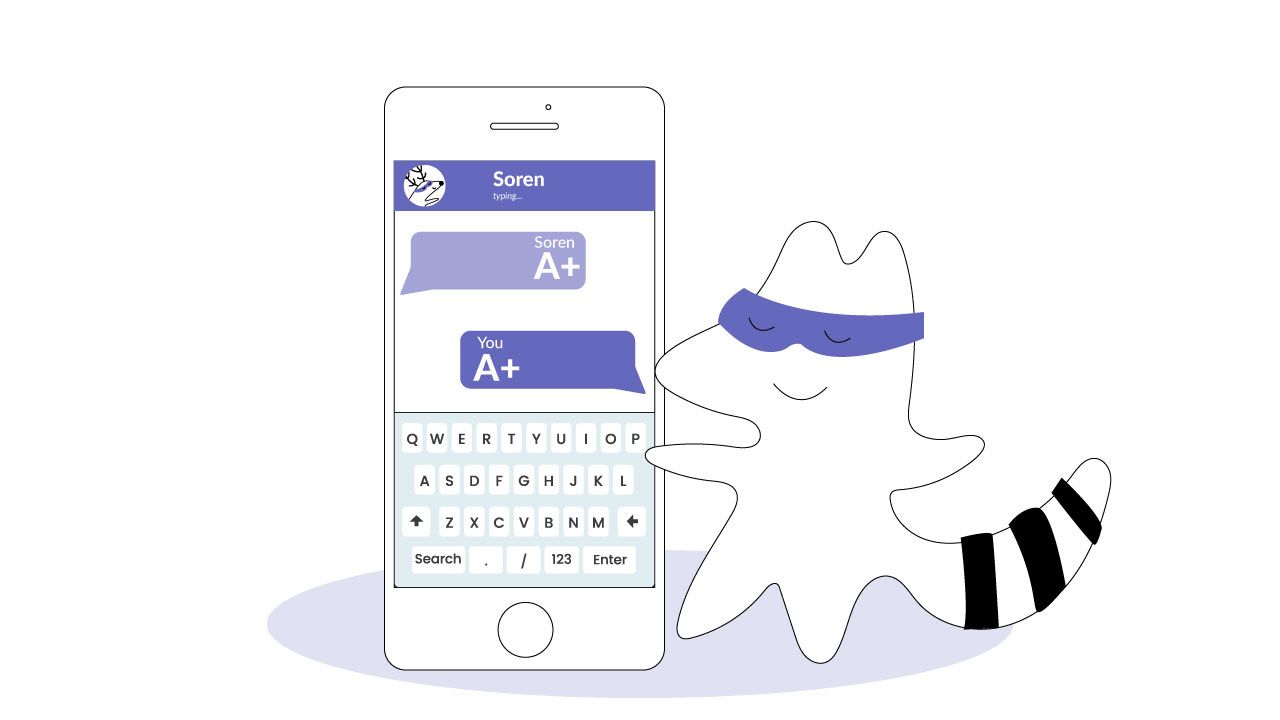
Is There Something Interesting About This Phrase?
Let’s split it into parts. We’ve already covered the “à” preposition - just like the one in “à bientôt,” it means “till” or “until.” “Tard” is the French adverb “late,” so that is also pretty straightforward.
However, we need to say “later,” not “late"; what can we do in such a situation?
That’s simple: add “plus.” This French adverb means “more,” and it can be used in a variety of ways.
When we are using “plus” in the affirmative construction, that will be pretty simple. “Je veux plus de livres” means “I want more books.” Note that just like with a “beaucoup” construction, you will use a partial “de” article here.
A negative construction “ne… plus” will simply mean “no more” or “not any more” - but we will cover this topic in another post.
And, finally, just like English “more,” French “plus” can be used in a comparative/superlative construction. For instance, just like in our example, you can use it to say “later” - “plus tard.”
How to Pronounce “À Plus Tard?”
There are two things you need to know to pronounce “à plus tard” well.
First, “d” at the end of the word is almost always silent, just like the most final consonants. The only exception to this are personal names (such as Alfred or David), and the word “sud” - south.
And second - “s” at the end of “plus” is also silent if you use this word in the middle of a sentence. However, this isn't always like that.
French
English
À plus tard
See you later
Rule: Using “Plus” in Different Construction
When the comparative or superlative “plus” is in the middle of a sentence - just as we have it here - it is not pronounced. However, in a negative or affirmative construction - for example, “I want more/less X,” the pronunciation of the final “s” will be extremely important.
Don’t worry, it’s not that confusing. Just remember that if you want to say “I want more butter” - “je veux plus de beurre” - you have to pronounce the “s” in “plus.” And if you want to say “I need less butter” using the construction “ne... plus,” you will have to omit the “s.”
Moreover, if “plus” is the last word in a phrase, you will pronounce the final “s.” You will also do the same when using the construction “plus que.”
All in all, ah plue tahr is probably your best shot when pronouncing “à plus tard.” However, we strongly recommend listening to a native French pronunciation of this phrase.
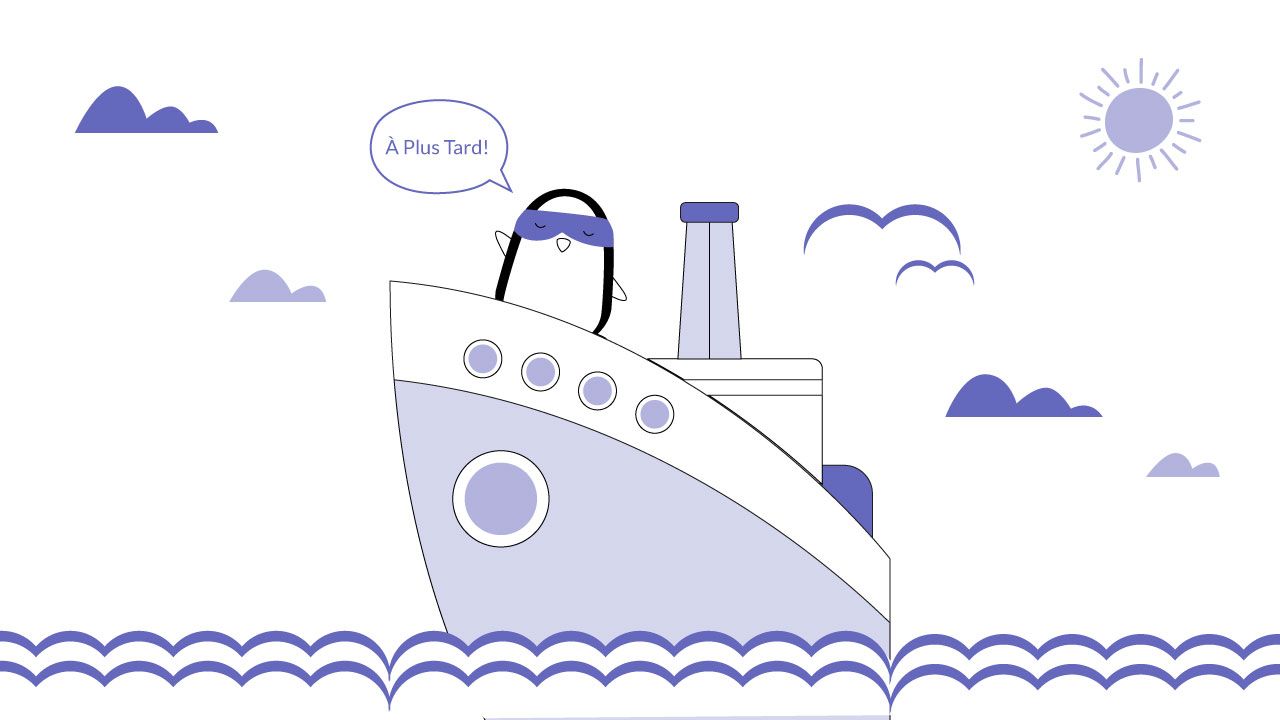
When to Use “À Plus Tard?”
If you are looking for a French equivalent of “I hope to see you soon” or “until we meet again,” you’ve found it. “À plus tard” is the perfect way to say a formal goodbye to your friend, colleague, or teacher.
"À plus,” on the other hand, works better in informal situations. If you want to say something like “see you later, alligator” - this is your best choice of goodbye. And don’t forget to add a hissing “s” on the end, so that it sounds like you’re Harry Potter talking to snakes.
Bonne Journée - When You Wish Well
If you already know the word “bon/bonne” and are familiar with the French word for “day” - “jour” - you probably can figure out that “bonne journée” literally means “good day.” And, as you may have already understood, it is used when you wish someone to have a good day, and you will hear people saying it from time to time in French.
"Bonne soirée” is similar - we only switch the word “day” with the word “evening,” making it “Have a good evening.” You can also place any other corresponding word at the end of the phrase, saying “good night” - “bonne nuit,” “good afternoon” - “bon après-midi,” “good luck” - “bon courage,” “have a good trip” - “bon voyage,” or “have a good vacation” - “bonnes vacances.”
All of those phrases are pretty formal - however, many native French speakers use them quite often in different situations. For example, you can say “bonne journée” when leaving a store, a classroom, or your friend’s house.
Basically, any time you are parting ways with someone for the day or night, you can use this expression.
Is There Any Trick to Use This Phrase?
Basically, “bonne journée” is usually enough. However, if you want to make it even more formal, you can add “Monsieur,” “Madame,” or “Mademoiselle” at the end of it. And it will be very polite to add “au revoir” after that.
What About the Grammar?
The expression is pretty simple, but there is an interesting thing that can attract your attention. Instead of simply using the words “day” or “evening” - “jour” and “soir,” we’re adding the “-ée” suffix to them. Why is it so?
Unlike English speakers, French people have two words for each of the following: year, day, morning, and evening. While this doesn’t create problems for native speakers, people learning French can get confused.
Let us explain this rule in plain English. When you’re using a word that expresses a simple unit of time - for example, an evening - you will use the masculine term: “soir.” However, if you want to emphasize the length of time, the feminine term will serve you well: “soirée.”
When wishing someone to have a good day or evening, you’re basically saying “have fun during this period of time.” Thus the use of feminine terms.
How to Pronounce “Bonne Journée/Bonne Soirée’?
That’s pretty simple: you can say bon zhoor nay or bon swah ray (or listen to the native pronunciation). Note that even though the sound “n” is not pronounced in the word “bon,” it is pronounced here.
French
English
Bonne journée
Have a good day
Bonne soirée
Have a nice evening
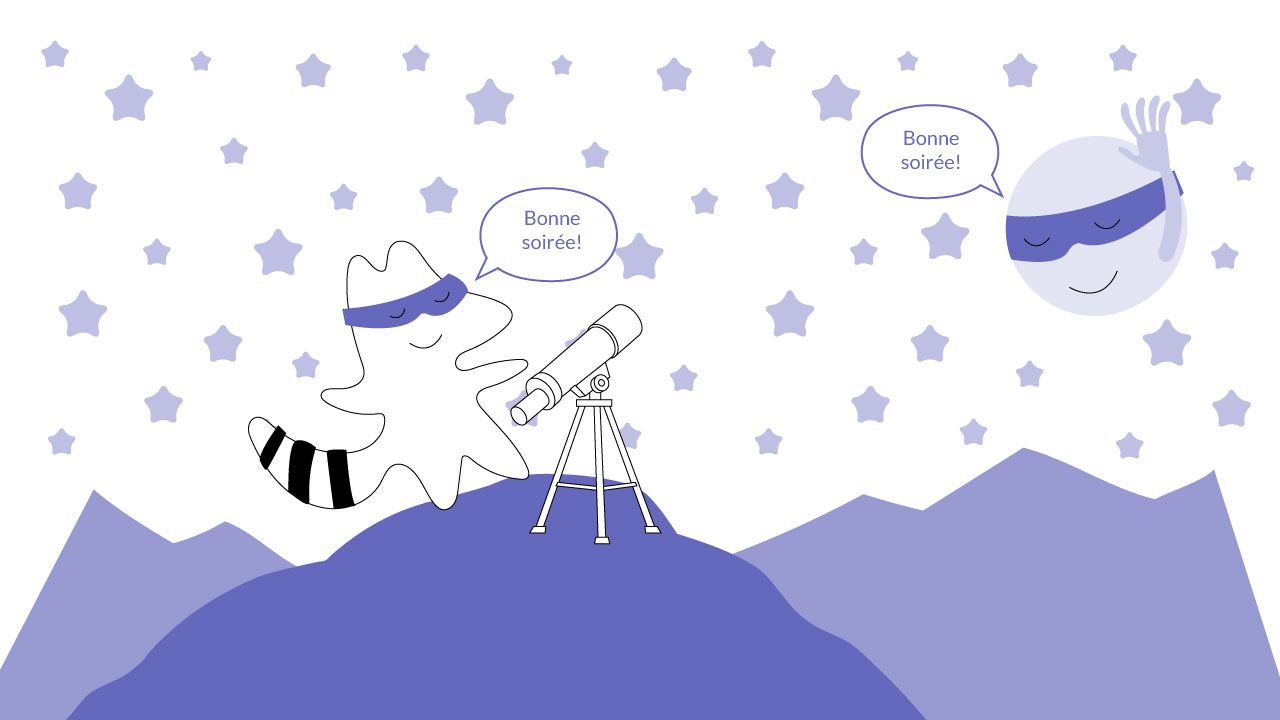
À la Prochaine - When You Want to Say Something Fancier than “Au Revoir”
This phrase is literally translated as “until next time.” Just like “au revoir,” it is used when you are planning to see the person again, but are not sure when exactly. So, if you want to avoid a classic expression and show your fancy side, “à la prochaine” is the way to go.
And it’s not as complicated as it sounds. The basic transcription would be ah la prosh-enne (or [alapʁɔ.ʃɛn] if you want to write it down).
French
English
A la prochaine
Until next time
À la Prochaine - When Not to Use?
Unsurprisingly, you wouldn’t use this phrase when talking to the people you don’t plan to see again. For example, when a train dispatcher checks your ticket, it’s better to stick with “au revoir” or “bonne soirée.” Of course, that is unless they are your close friend and you will see each other again in the future.
To Sum It Up
While “au revoir” may be the most commonly known French word for “goodbye,” it’s not the only one. In different situations, you can use different terms - and “salut” and “à bientôt” should definitely be in your vocabulary if you want to make a good impression.
Moreover, if you want to sound like a native speaker (or show how well you know this foreign language), make sure to learn expressions such as “bonne journée/bonne soirée,” “à plus tard,” and, of course, “à la prochaine.”
After all, you can't just learn French expressions by heart. You should also know how to say and use them as a real French person.







